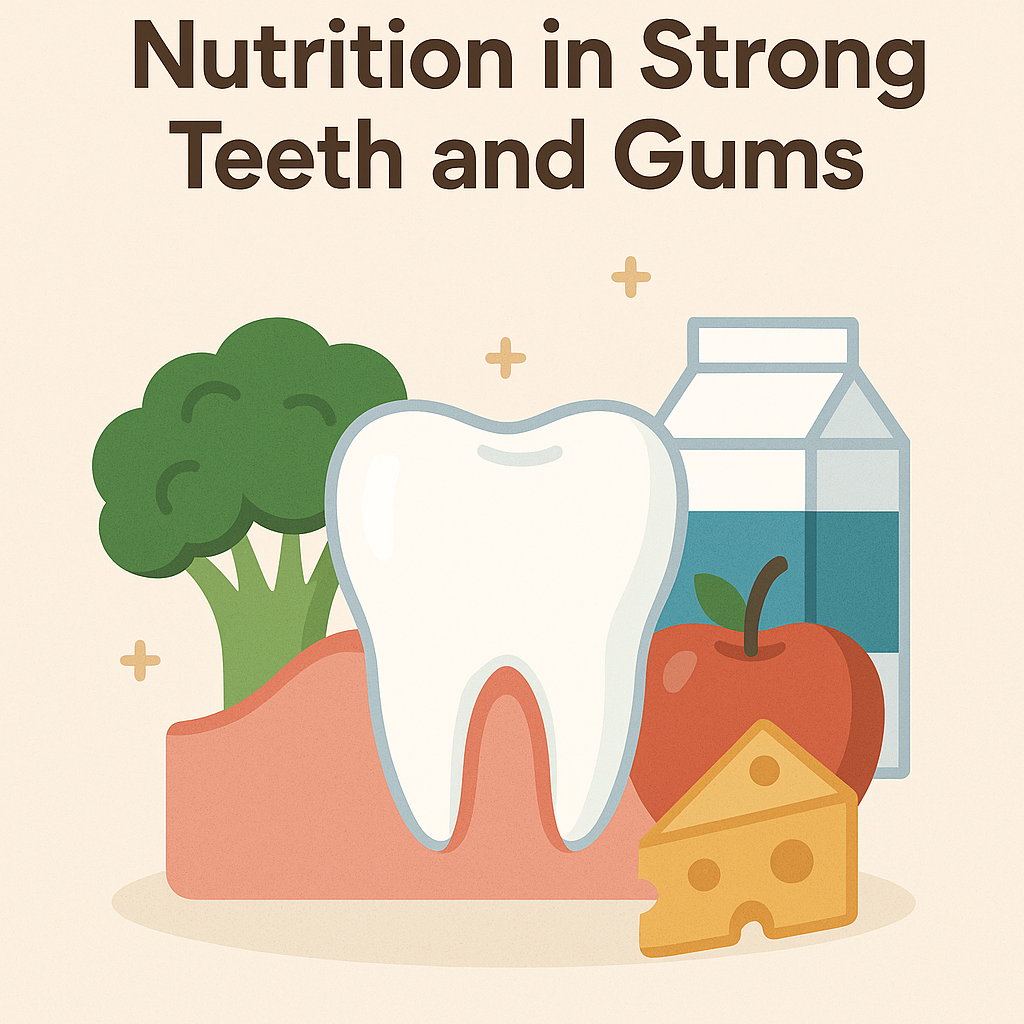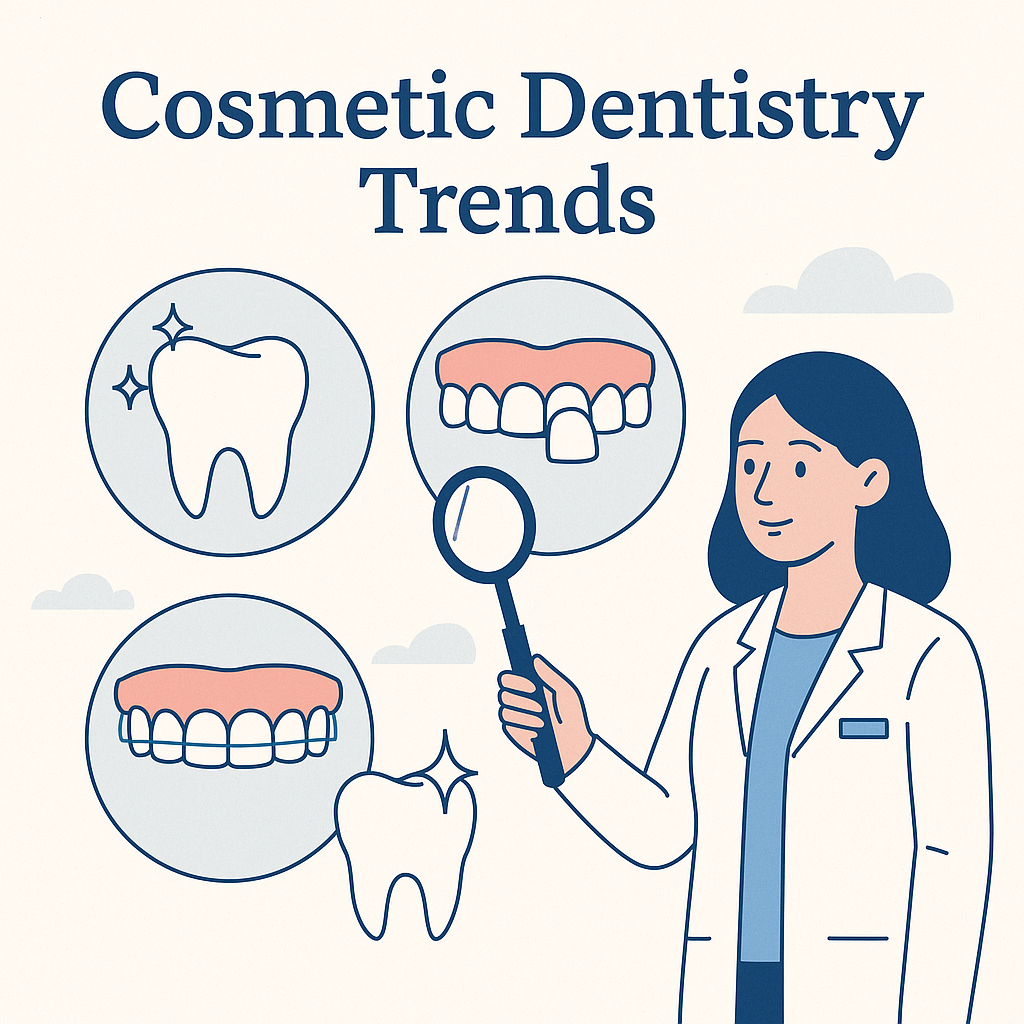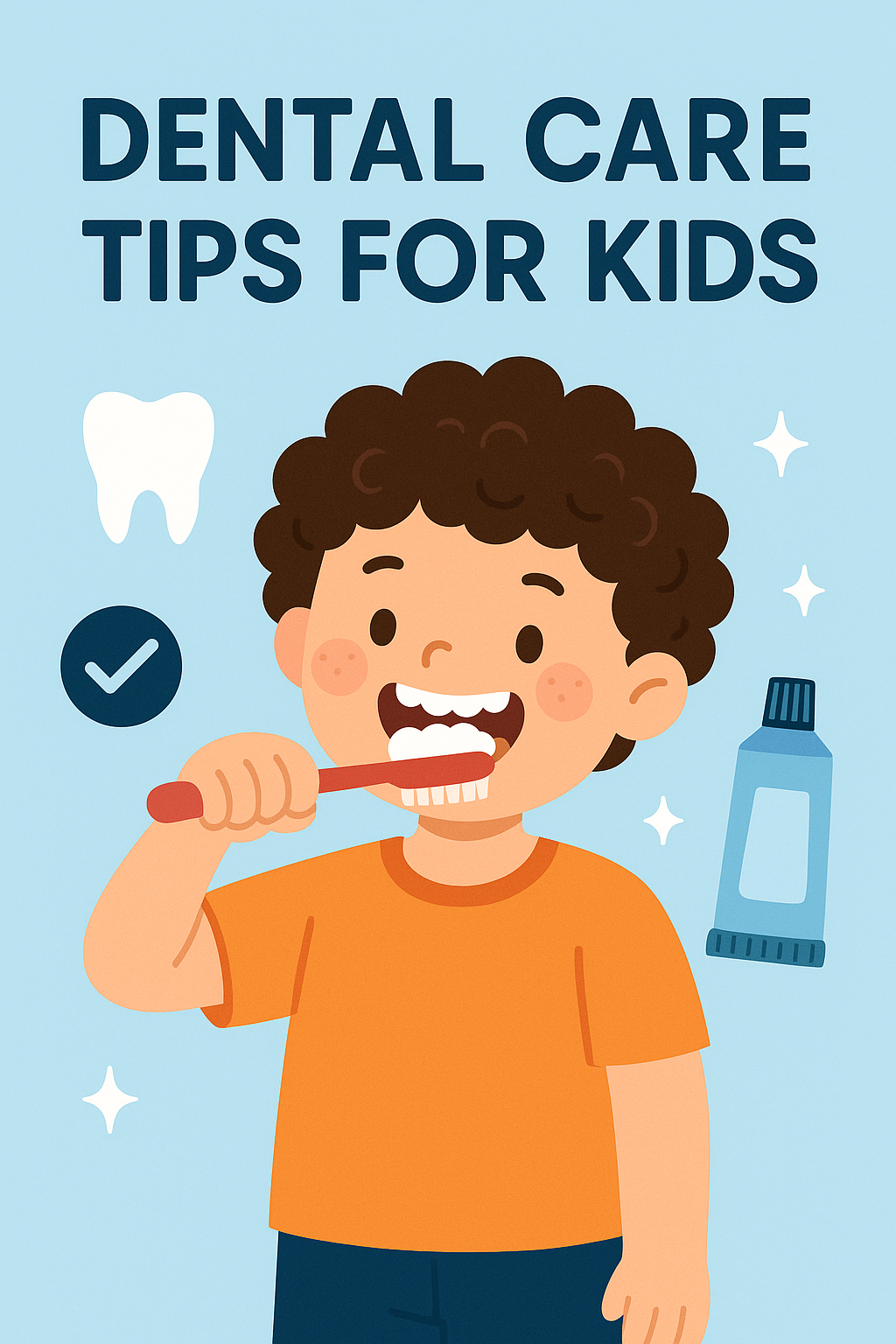Table of Contents
ToggleNutrition in Strong Teeth and Gums
The role of Nutrition in Strong Teeth and Gums. When it comes to oral health, most people think of brushing, flossing, and dental checkups. While these are essential habits, there’s another decisive factor that often goes unnoticed—nutrition. The food you eat directly affects the strength of your teeth, the health of your gums, and your ability to resist decay and disease. This guide explores the vital connection between nutrition and oral health and how you can use food to build a stronger, healthier smile.
Why Nutrition Matters for Oral Health
Nutrition impacts every cell in the body, and your mouth is no exception. Your teeth and gums are living tissues that require essential nutrients to stay healthy. A poor diet can increase your risk for cavities, gum disease, enamel erosion, and even tooth loss. Conversely, a nutrient-rich diet can help rebuild tooth enamel, reduce inflammation, and support the oral microbiome.
According to Wikipedia, oral hygiene is closely linked with dietary habits, which influence the development and progression of dental diseases.
Key Nutrients That Strengthen Teeth and Gums
1. Calcium
Calcium is a fundamental mineral for strong bones and teeth. It helps build and maintain enamel, the hard outer layer of the teeth that protects against decay. A calcium deficiency can result in weak, brittle teeth and increase the risk of tooth loss.
- Sources: Dairy products (milk, yogurt, cheese), leafy greens (kale, spinach), almonds, tofu, and fortified plant-based milks.
2. Vitamin D
Vitamin D enhances calcium absorption in the body and plays a crucial role in bone metabolism. Without adequate vitamin D, your body can’t properly utilize the calcium you consume.
- Sources: Sunlight exposure, fatty fish (salmon, tuna), egg yolks, fortified cereals, and vitamin D supplements.
3. Phosphorus
Phosphorus works alongside calcium to strengthen teeth by forming hydroxyapatite, a major component of tooth enamel and bone.
- Sources: Meat, fish, dairy, whole grains, nuts, and legumes.
4. Vitamin C
Vitamin C is essential for healthy gums. It helps maintain the connective tissues that hold your teeth in place and prevents gum inflammation and bleeding.
- Sources: Citrus fruits, strawberries, bell peppers, broccoli, and kiwi.
5. Vitamin A
Vitamin A is necessary for maintaining mucous membranes and salivary flow, which protect against dry mouth and infections.
- Sources: Carrots, sweet potatoes, liver, leafy greens, and eggs.
6. Antioxidants
Antioxidants combat oxidative stress in the gums, reducing inflammation and preventing periodontal disease. Polyphenols found in certain foods can also limit the growth of harmful oral bacteria.
- Sources: Berries, green tea, dark chocolate, and red grapes.
Foods That Promote Oral Health
High-Fiber Fruits and Vegetables
Crunchy fruits and vegetables like apples, celery, and carrots stimulate saliva production, which naturally cleanses the mouth and neutralizes acids produced by bacteria.
Dairy Products
Milk, cheese, and yogurt are excellent for your teeth. They are rich in calcium and phosphate, and also increase the pH in your mouth, reducing the risk of cavities.
Green and Black Tea
These teas contain polyphenols that suppress harmful bacteria and reduce plaque buildup. Drinking tea without added sugar can be a healthy addition to your oral hygiene routine.
Water
Fluoridated water helps strengthen teeth and rinse away food particles and bacteria. Staying hydrated also supports saliva production.
Foods and Habits to Avoid
Sugar and Refined Carbohydrates
Frequent consumption of sugary snacks and drinks feeds the bacteria that produce acid, leading to enamel erosion and cavities. This includes candy, soda, pastries, and sugary cereals.
Sticky and Acidic Foods
Foods like dried fruit, citrus, and vinegar-based dressings can cling to teeth or erode enamel over time. While not all acidic foods should be avoided, balance and moderation are key.
Snacking Constantly
Frequent snacking, especially on processed foods, creates a continuous acidic environment in the mouth, giving less time for saliva to neutralize harmful acids.
Nutrition Tips for a Healthier Smile
Eat a Balanced Diet
Include a wide variety of foods from all major food groups: vegetables, fruits, whole grains, lean proteins, and dairy. A balanced diet supports your oral health and overall wellness.
Limit Sugary Beverages
Swap out soda and fruit juices for water or milk. If you do consume sugary drinks, use a straw and rinse with water afterward to minimize contact with your teeth.
Time Your Meals Wisely
Allow time between meals for saliva to wash away food particles and repair enamel. Avoid grazing throughout the day to protect your teeth from constant acid attacks.
Chew Sugar-Free Gum
Chewing gum stimulates saliva, which is a natural defense against cavities. Choose sugar-free varieties that contain xylitol, which inhibits bacterial growth.
Nutrition and Oral Development in Children
Children’s teeth and jaws are still developing, making nutrition especially important during the early years. Calcium, vitamin D, and phosphorus are vital during this stage. Limiting sugary snacks and promoting healthy eating habits can prevent early childhood caries.
Child-Friendly Nutrient Sources
- Yogurt and cheese sticks for calcium
- Boiled eggs for vitamin D and protein
- Cut vegetables with hummus for fiber and vitamins
The Role of the Dentist in Nutritional Counseling
Modern dental care goes beyond the mouth. Many dentists, including the professionals at Atlanta Dentistry’s General Dentistry Services, offer nutritional guidance as part of preventive oral health care. During your routine visits, your dentist can evaluate signs of nutritional deficiencies and suggest dietary improvements that support a healthier smile.
Conclusion: Eat Smart, Smile Bright
Your mouth is a mirror of your overall health. By making informed dietary choices, you can strengthen your teeth, support your gums, and reduce your risk of dental problems. A well-balanced, nutrient-rich diet isn’t just good for your body—it’s essential for your oral health. Start making these changes today and experience the difference in your next dental visit.
Schedule Your Visit with Atlanta Dentistry
Ready to take charge of your dental health? Let our team at Atlanta Dentistry help you achieve a strong, radiant smile with comprehensive care and personalized advice. Contact us today to schedule an appointment and begin your journey to optimal oral wellness.





